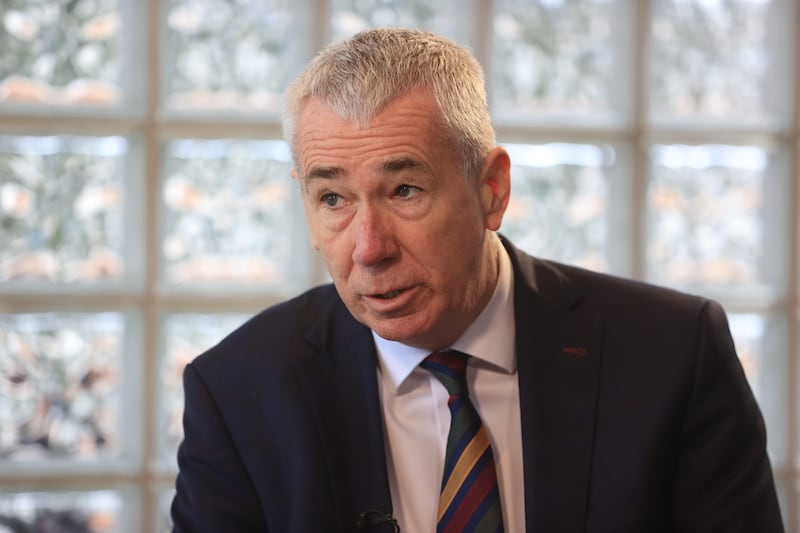The case of a Co Antrim man who died by suicide after being confronted by a group of self-styled `paedophile hunters', has caused deep concern and raises questions about the activities of such organisations.
Members of a group calling itself `Silent Justice' turned up at the man's home on Sunday and questioned him about alleged online activities involving children.
This encounter was broadcast live on Facebook, although the video was later removed.
It is understood the PSNI attended the scene, spoke to the man and arrested him and he was released on police bail on Monday.
The man, a father of two, took his own life on Tuesday morning.
It is important to emphasise that this man was not charged with any offence and his death is an absolute tragedy for his family, who deserve every sympathy.
What this case does is highlight the wider issue of the so-called `sexual predator hunters'. These are groups that engage with suspected paedophiles online, usually posing as children or underage teenagers, before confronting them and passing information on to the police.
There has been an upsurge in this type of group, particularly in England where they claim to have secured a number of criminal convictions as a result of evidence they have gathered.
Of course, there is widespread public alarm at the activities of paedophiles who target minors online, grooming them for sexual abuse.
Many people will support the exposure of the sexual predators but there are concerns over the activities of groups who set out to ensnare them using methods that are open to question.
Jim Gamble, former chief executive of the Child Exploitation and Online Protection Centre, said he understands the `frustration that draws people to become involved' but emphasised the unregulated nature of these groups.
He also warned that `we are not far away from an accident happening or an innocent person being accused.'
A senior PSNI officer has added his voice to concerns.
Detective Chief Superintendent George Clarke said `confrontation and exposure of personal details has the potential to put people at risk and interfere with any subsequent investigation.'
He appealed for anyone with information about criminal activity to pass it to the police so that it can be dealt with in the most appropriate way.
Clearly, it is the role of the police and other statutory agencies to safeguard children, investigate allegations and ensure perpetrators are brought to justice.
Anyone who is accused is entitled to due process and the rule of law must prevail.
Groups or individuals who identify a potential sex abuser should pass the information to the police where it should be acted upon as a matter of urgency.







